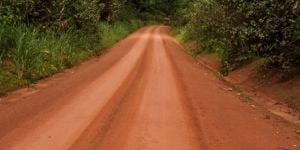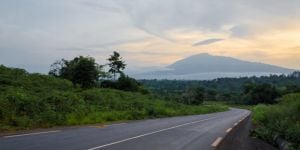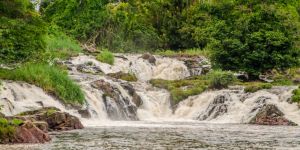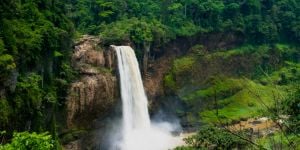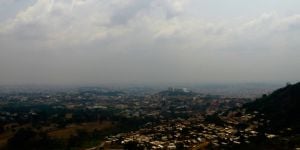Hello
This is my second post on the forum to see if I can find the answer to a question that has been bothering me for a very long time. The first ten years of my life was spent living in either England, Nigeria or Cameroon. My Dad (who was born in France of a French mother and English father) signed up for contracts, mostly as a Commercial Manager for varying lengths of time and my mother and sisters would join him in whichever country he worked. At various times we lived in Douala, Lagos, Port Harcourt and Ibadan, In 1964 we were living in England but Dad got another contract - working for Pamol (a subsidiary of Unilever), on the Bwinga Estate in Tiko to set up a new branch of the company. On 14th June1964 he was with a party of French friends on Nine Mile Beach and drowned. I've been told there is a riptide at that beach, but it's probable that he would familiar with the beach and know about the riptide. He was a tall, well-built man and a very powerful swimmer. I've also been told that his body was found and towed back to Tiko, where he was buried. However there were apparently two deaths (and burials) at that time and one of the body's was exhumed for private burial elsewhere so it's understandable that memories become confused.
In the past, I've spoken to as many of his colleagues as I can, although the one he worked with most was not well enough to talk to me. I've also spoken to the man who was given Dad's job as his replacement. Who told me he never heard anything about a 42 yr old man with three children in the UK who drowned and was buried locally and added that he was the first person to hold that position in the company. Setting up a new company would require writing and receiving letters to suppliers and customers - so quite surprising that the person taking over the job wouldn't come across mention of his predecessor.
I was only ten when my Dad drowned and knew very little of his past. Some years ago I became interested in researching my family history and my mother gave me an envelope full of documents which Dad had given her with instructions to never part with them. The documents included his 1943 diary, official forms, letters from people in France - some in English and others in French, and a letter from the War Office asking him to attend an interview in Room 900 - from the I.S.L.D. in November 1942. Prior to this, he was involved in an incident in France in which he shot at least two German soldiers and following this he joined the French Army as a way of getting out of occupied France.............his 1942 diary is full of entries completed in North Africa. When the Allies won in North Africa, the French were told by de Gaulle to join the Free French, but dad refused to do so and insisted he should join the British Army as his father was French. The page of 22nd November 1942 - his interview at the War Office, has been cut out.
I'm going to cut a very long story short here and just state that the results of many years research are that it is almost certain he was recruited by MI6 for "special operations" in occupied France. My research included talking to people who have had experience of MI6 and their view is that once you work for MI6, they keep tracks on you and if the need arises, they ask you to undertake some work for them.
I have two death certificates:
1. Non Natives Death Register, Victoria Division. Cause of death: Immersion. Two certifying Medical Practitioners: Dr Trencham and Dr Kenfelec. Informant: R.G. Dawson.
2. Death within the district of the British Consulate at Buea. Informant: T F Swynnerton.
I have been in touch with the British Consul, who tell me all their archives were destroyed in a fire many years ago. I have also been in touch with the French Consulate who have never acknowledged my letters.
I'd love to be put in touch with anyone who was at the beach party on the day my father drowned...........and possibly witnessed his death. My objective is to ascertain if my Dad's death was purely accidental death by drowning from the riptide, or death by some other means.
I would also like to know if there was a Coroner who certified deaths and/or witnessed documents at that time - or any other officials - and if any archives exist.
Many thanks and apologies for the lengthy post.
Best wishes for Christmas and the New Year.
